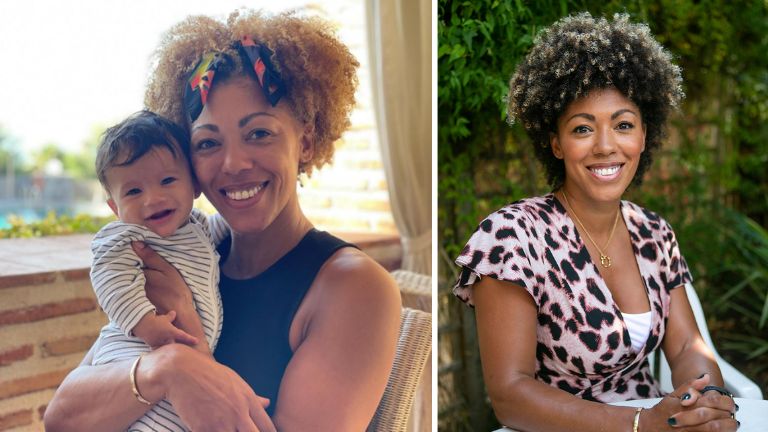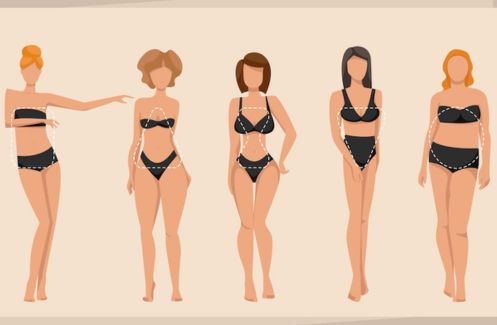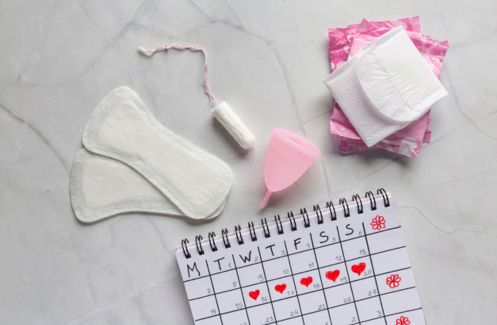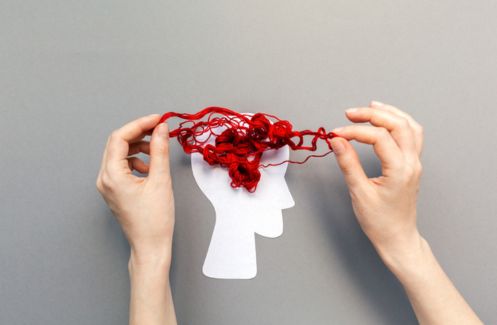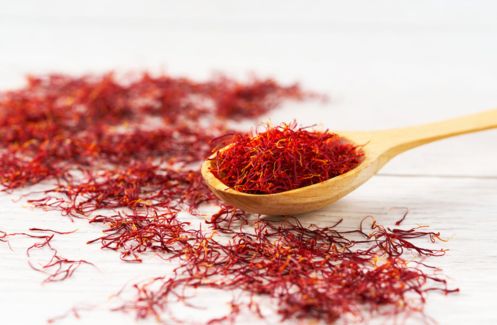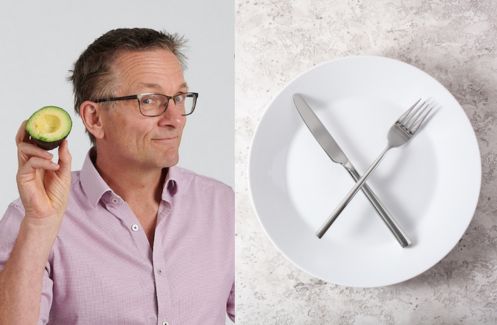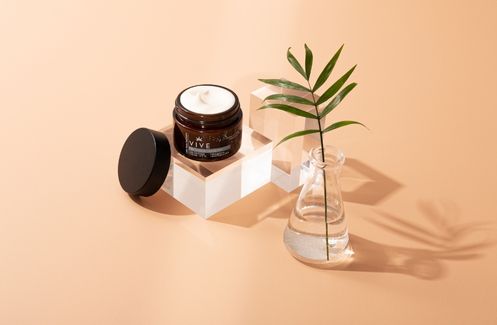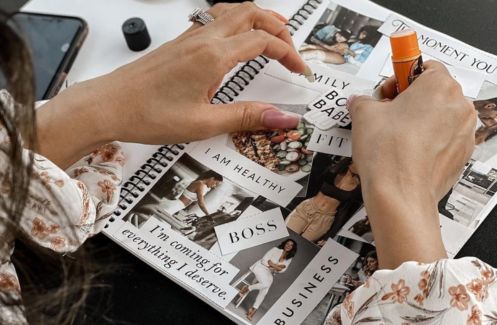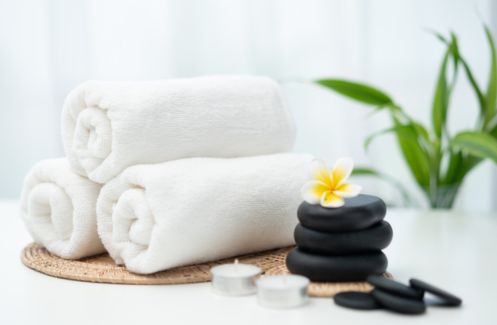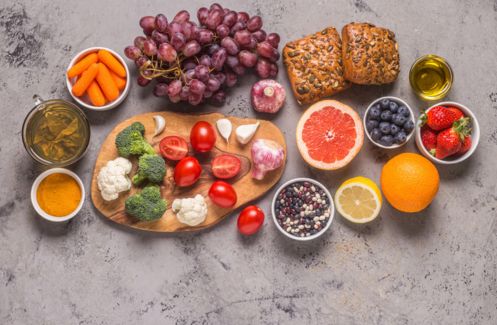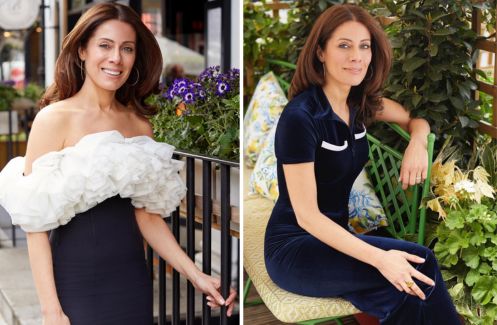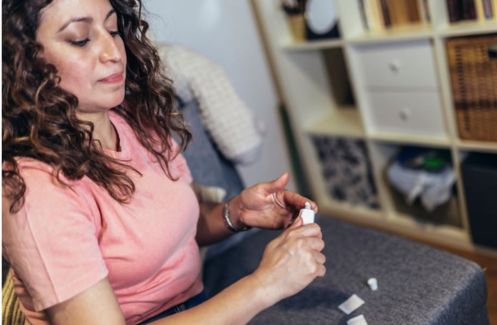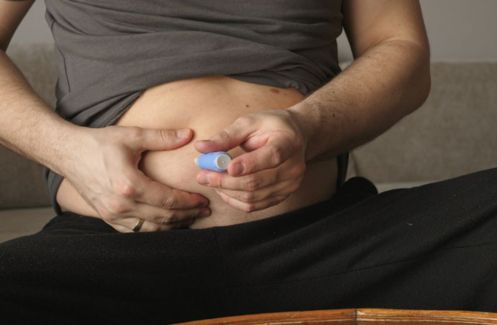Has having a baby completely changed your life? Healthista spoke to ITV’s This Morning resident GP Dr Zoe Williams on what she has learnt since becoming a mother
Welcoming a baby into the world is a joyful time for new parents, and learning to navigate motherhood can bring about many challenges and frustrations.
Highlighting how challenging bringing home a new baby can be for parents, research conducted by premium children’s brand Stokke, found that almost a quarter of new parents lack confidence in their parenting abilities.
With a shocking 84 per cent of parents surprised at how their life had changed and 22 per cent struggling with their lack of confidence in their parenting abilities, the survey revealed it’s usually the mother who tends to feel parental guilt the most.
almost a quarter of new parents lack confidence in their parenting abilities
Healthista spoke to resident doctor for ITV’s This Morning, Dr Zoe Williams, 41, who gave birth to her son Lisbon Lion Williams-McKay in May 2021.
‘Becoming a parent for the first time is not only wonderful but it can be incredibly overwhelming,’ says Dr Zoe Williams, NHS General Practitioner and TV personality.
Here’s what Dr Zoe Williams had to say about motherhood and what she has learnt since Lisbon entered her world…
#1 Sleep deprivation is inevitable
According to the survey parents experience certain frustrations when they have a new baby, not surprisingly a lack of sleep came out on top with 62 percent saying it was their biggest bugbear.
‘When you’re a new mum you tend not to sleep deeply. This is because you’re constantly on high alert with your new maternal instinct,’ says Dr Williams.
‘This maternal instinct tells you that it’s your job and responsibility to make sure the baby is safe and well at all times.
‘Because of this, it’s a good idea to hand over this maternal responsibility to someone else – even if it’s just for one evening a week.
‘Whether that’s your partner, friend or parent, being able to switch off this maternal part of your brain and get one night of quality sleep can make all the difference to your mood and wellbeing.
you’re constantly on high alert with your new maternal instinct
‘Stuart and I got into a routine where on the weekends, I would do the last night feed around 5:30am and then I would go and sleep in the spare room. This allowed me to hand over the responsibility to Stuart so I was able to lie in until 9am or even 10am and he would be up with the baby.
‘Having been a doctor and working as a junior doctor in hospitals doing night shifts, I’ve experienced the symptoms of tiredness and sleep deprivation before, and they can be quite distressing.
‘Your brain is unable to think clearly, simple tasks like tying your shoelaces can be extremely difficult and you may also experience hallucinations.
‘Not only do you deal with sleep deprivation as a new mother, but also your changing hormones, new psychological emotions and your body trying to heel.
‘There is so much going on at the same time, that to be able to compartmentalise and recognise that the reason you’re feeling that way is due to lack of sleep and circumstances out of your control is quite reassuring and proves that you’re not going mad’.

#2 Your time is no longer your own
The survey also revealed other frustrations parents experience when having a baby, from never getting anything done, to not having time to go to the toilet or have a shower.
‘I used to have a shower every day and I genuinely don’t have the time to have a shower now.’ reveals Dr Williams.
‘I also used to enjoy sleeping more than four consecutive hours at a time and I used to decide to just go somewhere and do something and just do it, which I no longer have time to do or am able to do.
I genuinely don’t have the time to have a shower now
‘I do sometimes miss my old carefree life, but there is absolutely no way in the world I would ever switch my old life for the one I have now because there have also been lots of changes that have been for the better.
‘Stuart is such a wonderful father and not only that, he has taken on the role of caring for me, making sure I look after myself too and giving me the time I need to have a break.
‘As the mum it’s your responsibility to be the primary carer for your baby, but it’s everybody else’s responsibility to look after the mum’.

#3 You’ll discover patience and perspective
‘Since becoming a mother one of the main things I have noticed is how I have learnt to let things go,’ explains Dr Williams.
‘Stuart and I never used to argue much, but now that there’s a baby in the house I don’t even raise my voice and so have learnt to let go of things that don’t really matter.
now that there’s a baby in the house I don’t even raise my voice
‘Plus, I also haven’t had the energy to be upset or angry and this has made me far more patient and tolerant.
Before I had Lisbon I suffered with anxiety and I was worried that it would become worse after giving birth, but actually, the old anxiety is much better and I have a different sort of anxiety now that I try to think of as exciting rather than frightening, which has really helped to put my old anxiety into perspective’.
#4 Relationships may change
‘There are certain friendships that I have had to make an extra effort in to maintain, particularly with single friends,’ says Dr Williams.
‘This is because there are some things that you’re just not going to do anymore, like partying on a Friday night. So if you have friends where your relationship was built around going out and partying, you have to find a new way to stay connected with that person.
‘I definitely got a lot closer to my friends who do have children though, it really is like you enter a club when you become a parent and you automatically have a new layer of bonding with your friends who do have children’.

#5 Adapt your baby to your life, don’t adapt your life to the baby
When a baby comes into your life, you will make many new adaptions, but it’s important that the baby eventually fits into your old life too.
‘There’s a saying that always sticks in my mind, ‘when the baby is born, there’s also a new person born within the mother’,’ recalls Dr Williams.
‘Both mother and baby are equally in need of love, care and nourishment and because you become a new person overnight it takes work and effort to try and hold onto certain aspects of your previous identity, especially in the first few weeks and months.
it’s important that the baby eventually fits into your old life too
‘When your baby is born it’s inevitable that your life will change considerably, but try and think about what things in your previous life you can continue to do and what you can introduce the baby into, rather than you changing your life for the baby.
‘When Lisbon was approaching six months, I started going back to the gym and lifting weights which helped makes me feel physically and mentally strong.
‘Another thing that helped me was working, I’ve continued to do some work, which although not an option for everybody, it does help me hold onto my identity’.

#6 Asking for help is normal
Another interesting statistic that came up in the survey was that 71 per cent of parents admitted to being reluctant to reach out and ask for help during the first few weeks of bringing their baby home.
What’s more, 40 per cent did not want others to think they can’t cope if they were to ask for assistance.
‘This constant pressure to seem like you’ve got it all together and are doing fine, otherwise there is this element of failure says a lot about todays society,’ says Dr Williams.
‘Being a first time mum, even for the people who are confident, your confidence will be rocked and shaken for a number of reasons out of your control.
‘I myself felt lots of pressure, especially being an older mum and a GP. I wanted people to think I was doing great and had it all together. I was fine most of the time, but certainly not everyday and I definitely appreciated the help.
People are very willing to offer help but it can be difficult to articulate the help you need from them
‘People who feel genuinely confident bringing home a new born in those first few weeks will definitely be the exception and not the norm, and however confident you may be, remember help is available that will help to make your life easier.
‘Most people are lucky enough to have somebody that will be willing to help, whether that’s a parent, relative, friend, work colleague or neighbour.
‘People are often very willing to offer help but it can be difficult to articulate the help you need from them but don’t be worried to ask for a specific type of help.
‘Often visitors will come round and want to hold the baby, but the help you actually need may be wanting someone to put the bins out for you, clean the bathroom or grab a few bits from the shop for you.
‘It may be difficult to ask whilst you’re in the midst of the chaos but my advice would be planning beforehand on how people will be able to help you and when. Make lists of chores people can do to help and you can place that on the fridge for them to easily find’.

#7 Expectations of motherhood can overwhelm you
‘Whilst you’re pregnant you have in your mind that you’re going to give birth and immediately feel this overwhelming new emotion of love that you have never had before,’ describes Dr Williams.
‘But honestly, I didn’t have that overwhelming feeling of love straight away and other people have said the same thing.
‘There’s just so much going on when you give birth. The moment Lisbon was born, my motherly primal instinct of protection overtook my feelings of love.
‘This was closely followed by feelings of anxiety and having this huge responsibility that felt bigger than any responsibility I had ever had before. This tiny little baby is completely dependent on me for everything, you can’t help but feel the pressure’.
More Healthista Content:
From better sex to blissful sleep – 3 reasons you NEED to try CBD
Brittle nails? Feeling bloated? 7 signs you’re not digesting protein properly
E4’s Body Fixer Dr Nina Bal reveals results of her miracle non-surgical face lift
Top Dietitian explains the first 4 KEY steps to successful weight loss
5 ways to ease anxiety during menopause
Like this article? Sign up to our newsletter to get more articles like this delivered straight to your inbox.


